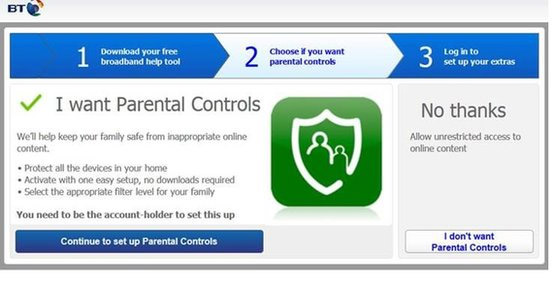Despite David Cameron getting his way on recent ISP level filtering, British politicians are looking to tighten the law and controls even more, demanding that every site featuring “harmful adult content,” implement an age verification system or face blocking in a similar style to sites involved in piracy.
This comes from a report by the Culture, Media and Sport Committee, which ultimately believes that online porn is too accessible to children and that its viewing is damaging to their development. While typically the wording there is incredibly vague and either implies a deliberate loose definition to cast a wider net, or a lack of knowledge about the subject and moral preaching, the report still has plenty of recommendations for ‘improvements' to the current system.
It wants content hidden in a similar manner to pornographic magazines on the top shelf of shops, age verification based on credit card data, metadata that tips ISPs off to the site's content, stricter filtering at the ISP level, increased prosecution of any site found to be in breach of the 1959 Obscene Publications act and the blocking of sites that don't hinder access by children. Unfortunately, almost all of these ideas seem totally flawed.
Firstly, the mention of magazines in the same breath as online streaming porn seems redundant. Their sale, distribution and location are entirely different and practically unrelated. Secondly, considering the most popular porn sites in the world are free, credit card age verification would be impossible. Likewise, any age verification gates would just be clicked through by determined children anyway. Thirdly, as Wired points out, the Obscene Publications act was once used to try and ban a book that featured explicit sex; it seems woefully outdated to be of use in this situation.

Parents and schools have had access to porn filters for years. Surely better educated parents would be better than an opt-out scheme?
Despite the lack of real know-how surrounding the situation, Claire Lilly, child safety officer at the NPSCC, has come out in support of the report. Considering it leans heavily on the idea of “harmful,” pornography, when asked what that definition was, Lilley said: “I would say what we are talking about is hardcore, explicit content. A lot of adults are used to seeing soft porn in magazines, but this is hardcore explicit porn that might be harmful to children.”
While she doesn't seem to have a problem with pornography magazines – something that caused outrage in their own right back in the day – her wording suggests children are viewing and have been viewing magazines for years and it's not been a problem. Pornography in general is an adult medium, while some children will always find a way to access it, it's all illegal for them to view. Why should websites be singled out because their content “might be harmful,” when viewed by people the law already prohibits from doing so?
KitGuru Says: This is more moral policing with the use of another buzz-worthy topic, pornography, that sits right alongside terrorism as a way to make big changes without vocal opposition. Protecting children from things that they shouldn't see online or in the real world, is the responsibility of parents. It isn't the job of the government to censor content because children might see it and it certainly isn't the job of private companies being forced to do so by politicians that don't know what they're talking about.
 KitGuru KitGuru.net – Tech News | Hardware News | Hardware Reviews | IOS | Mobile | Gaming | Graphics Cards
KitGuru KitGuru.net – Tech News | Hardware News | Hardware Reviews | IOS | Mobile | Gaming | Graphics Cards

